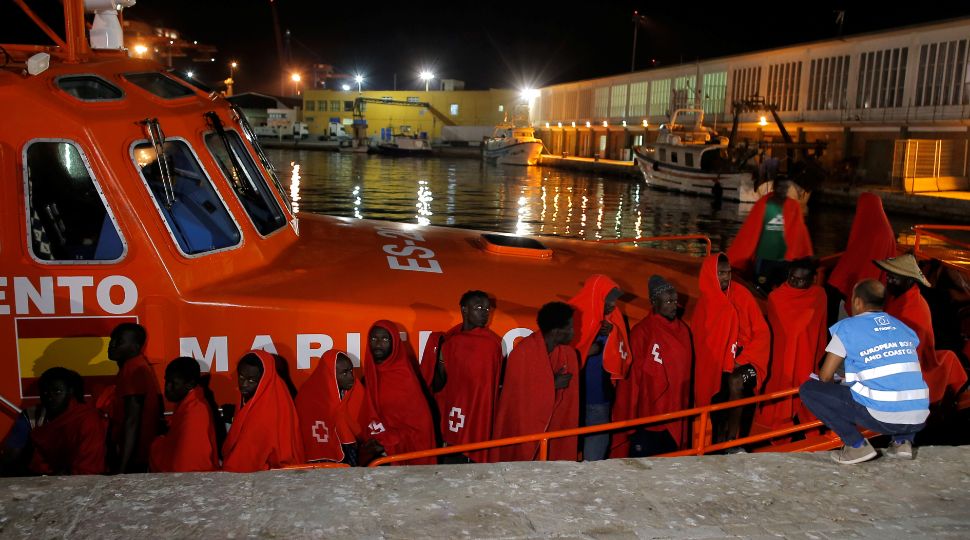Prospects for Differentiated Integration in EU Asylum Policy

Since the escalation of the refugee and migration crisis in 2015, many attempts have been made to reform the EU asylum system. Despite the fall in irregular migration (150,000 irregular border crossings in 2018, down 92% compared to 2015), migrants are still entering the EU by illegal means. Following the blocking of Italian ports by the government of the Five Stars Movement and the League, European countries were forced to seek a solution with the arrival of each ship.
Southern European countries, which still receive many asylum seekers, are appealing to other EU Member States for joint responsibility for the new arrivals. In August, the Cypriot authorities sent an official letter to the European Commission calling on Member States to relocate 50,000 people who have applied for asylum in that country. Spain is also calling for financial and operational support, as the country is currently facing large influx of migrants by sea.
Seeking a Pan-European Solution
In response to the migration crisis, the EU adopted two temporary (for a period of two years) refugee relocation programmes in 2015. The first was based on the voluntary principle, and the second on a quota distribution system. The programmes aroused much controversy, especially in Central Europe, which reflected on their poor implementation. Despite the failure of these temporary programmes, the EC proposed a permanent relocation system on their basis. The Dublin+ project (Dublin IV) envisaged introducing into the Dublin Regulation a correction mechanism to be activated in situations of increased migration pressure. It was assumed that, if one country receives a disproportionate amount of asylum applications, subsequent applicants will automatically be directed to other EU countries until the crisis is resolved. An alternative was presented by the V4 countries, which were sceptical of the EC's idea. Their idea of “flexible solidarity” would leave each Member State to make the decision on the form of support they could and wanted to give to the most affected EU countries. In the absence of a compromise between supporters of these two concepts, Member States have attempted to set up non-European centres of disembarkation for migrants rescued at sea. However, this idea encountered resistance from countries neighbouring the EU, which would potentially host such facilities.
French-German Solidarity
Ad hoc attempts to distribute migrants after the arrival of each new ship gave rise to disputes between EU Member States, and protracted negotiations continue to delay the resolution of their legal situation. That is why Germany and France proposed a new solution. At the end of July, during an informal meeting of EU and Schengen area interior and foreign ministers in Paris, they presented their “solidarity mechanism”, which would allow the quick reception of migrants by a coalition of willing countries in exchange for the opening of ports by Italy and Malta. The details of the plan were not disclosed, but President Emmanuel Macron, host of the meeting, said 14 countries had expressed their will to participate in the project. Only eight of them (France, Germany, Portugal, Luxembourg, Finland, Lithuania, Croatia and Ireland) declared “active participation”.
France and Germany are counting on reaching a formal agreement in September, to allow the involvement of a larger group of countries. Establishment of “enhanced cooperation” requires (under Article 20 of the EU Treaty) the participation of at least nine Member States. The desire to include countries that are within the Schengen area but not part of the EU (e.g., Norway or Switzerland), and the fact that enhanced cooperation must not violate the “internal market or economic, social and territorial cohesion” (Article 326 of the Treaty on the Functioning of the EU), however, calls into question the implementation of such a solution. An alternative is an inter-government agreement outside the treaties.
The Consequences of Differentiation
An agreement on a solidarity mechanism would be an opportunity to break the deadlock in work on reforming the EU’s asylum policy, something that has been ongoing for several years. With real (and not only declarative) involvement of Member States, it creates a chance to provide relatively swift, effective assistance to refugees from conflict regions, and to alleviate existing tensions between EU countries.
However, differentiation in the area of migration carries political and economic risks. If, despite formal reservations, enhanced cooperation were to be established in EU asylum policy, it would have financial implications. In the new EU multiannual financial framework, a sum would probably be ring-fenced for countries which participated in the project. Cooperation among the coalition of volunteers, regardless of whether implemented pursuant to Art. 20 TEU or inter-government agreement, would also have negative consequences for the cohesion of the Schengen area. Border controls within the zone are already maintained by six countries today (France, Austria, Germany, Denmark, Sweden and Norway). Macron’s earlier announcements regarding the need to link membership of the Schengen area with the obligations of responsibility and solidarity suggest strengthening the tendency to form internal circles within the Schengen area in the event that some Member States refuse to participate in the solidarity mechanism. This, in turn, may have a negative impact on the functioning of the single market, and on the social perception of European integration. In a special Eurobarometer survey on public perceptions of Schengen, nearly 70% of Europeans recognised the zone as one of the main achievements of integration, and 75% appreciated its impact on the development of the economy of their country. In Poland, these rates were 80% and 85%.
Prospects
The failure of attempts to reform the EU asylum system to date has not ruled out further efforts to break the deadlock. The fact that the crisis has already been limited somewhat, and that there is continued high support for European integration, both speak in favour of a substantive discussion on the subject.
The new Italian government, which will not include representatives of the anti-immigrant League at Matteo Salvini’s Ministry of the interior, will probably decide to unblock the ports. This relieves tension between countries, but it will not solve the problems of EU asylum policy. The pressure from Italy and other southern countries regarding a systemic solution for solidarity in this area will not cease. Migration will remain one of the European Union's priorities.
In the new term of the EU institutions, migration policy will be developed in two directions. Attempts at establishing enhanced cooperation or for a coalition of volunteers will continue, but neither will halt the search for a pan-European solution. This is demonstrated by, among other things, announcements by Ursula von der Leyen, the future head of the European Commission, regarding a “new pact on migration and asylum”.
Establishing cooperation for the allocation of migrants to a narrower group of countries may alleviate the fears of other EU Member States, including Poland, and encourage them to become involved, which in turn would enhance chances of agreement on a comprehensive reform of the EU asylum system. There would probably be some flexibility in relocation. However, the escalation of mutual accusations about migration may lead to a missed opportunity as political parties harden their positions. In consequence, divisions in migration policy will consolidate, seriously threatening the uniformity of the Schengen area and the EU market.


